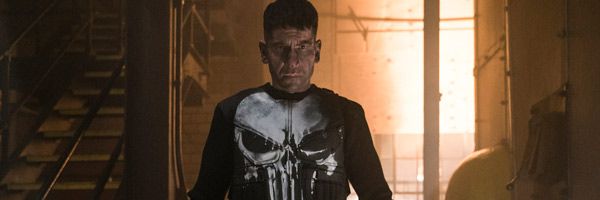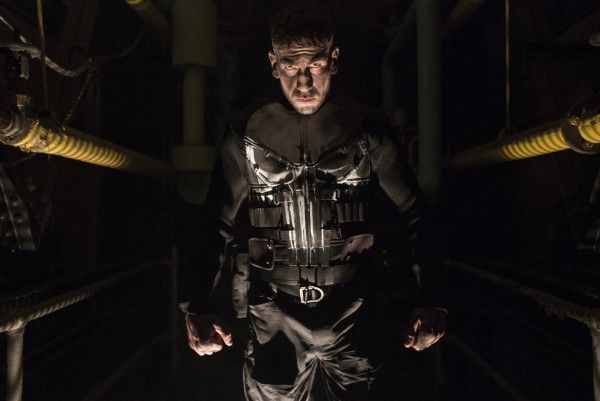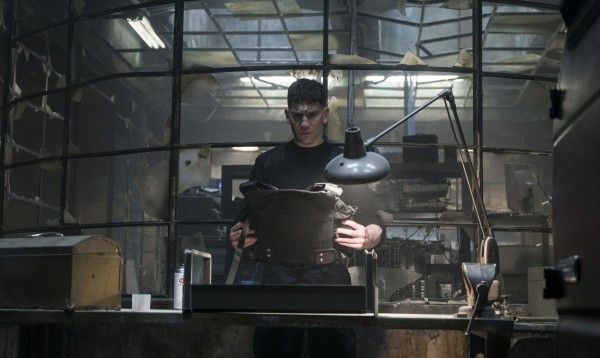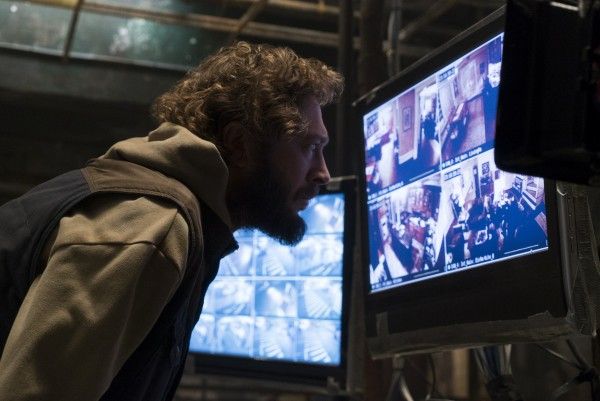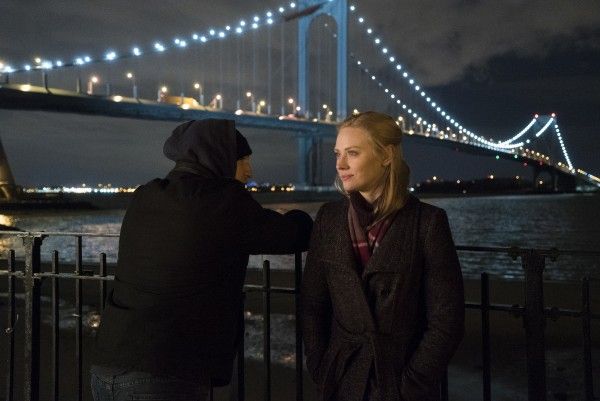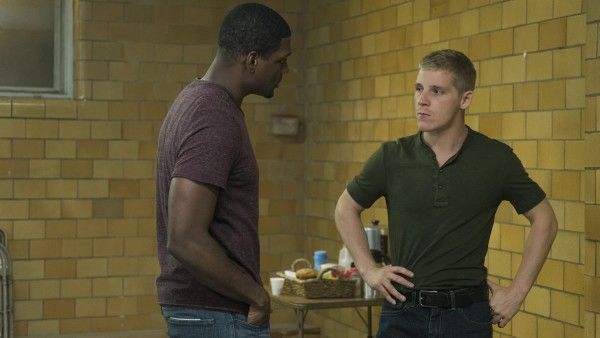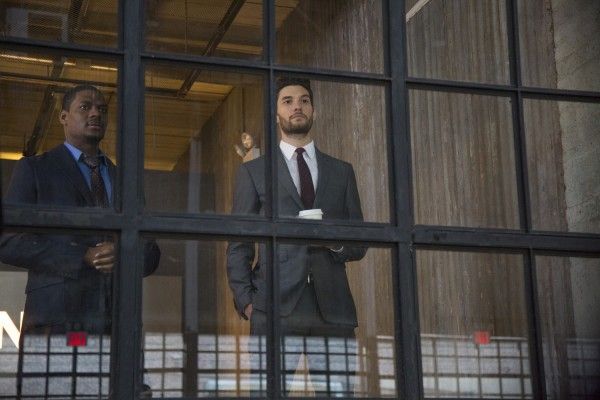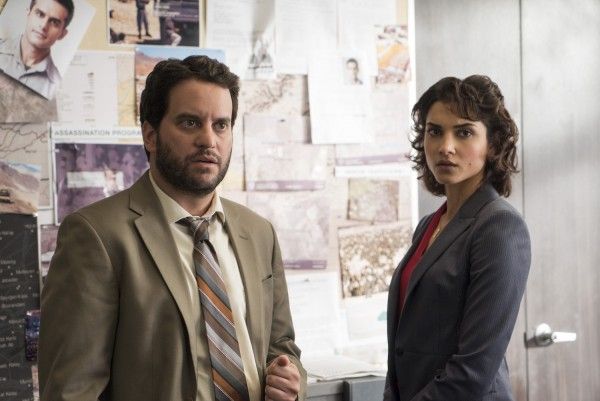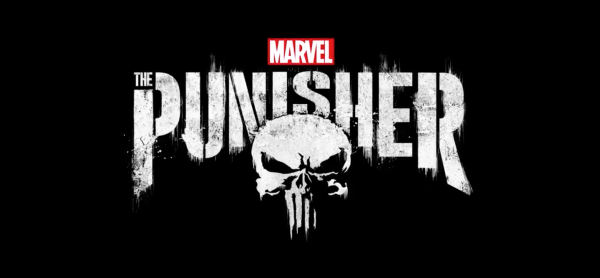Be aware there are some slight spoilers discussed.
From showrunner Steve Lightfoot (Hannibal), the Marvel/Netflix series The Punisher follows Frank Castle (Jon Bernthal), who mistakenly thought he’d be able to disappear into a quiet life, now that he was finished exacting revenge on those responsible for the death of his wife and children. But when he uncovers a conspiracy that runs far deeper than New York’s criminal underworld, The Punisher must discover just how far and deep the injustices run.
During this 1-on-1 phone interview with Collider, executive producer/writer Steve Lightfoot talked about what he wanted to carry over from Daredevil Season 2, how they built on the story from there, what Jon Bernthal brings to the character, pacing the series for 13 episodes, why total redemption for Frank Castle is tricky, the humor, why Karen Page (Deborah Ann Woll) was an important part of the story, how close this version of Billy Russo (Ben Barnes) might get to the Jigsaw in the comics, and the desire to continue to tell this story, in future seasons.
Collider: When you saw Frank Castle go on his journey to becoming The Punisher in Season 2 of Daredevil, what was it that most spoke to you about him, as a character, and about Jon Bernthal’s performance as this character?
STEVE LIGHTFOOT: I came in and met the guys about the show before Daredevil Season 2. I think Daredevil and Jessica Jones had aired, and I had really liked what Netflix and Marvel were doing with those. I thought they were gritty and smart, and just a really clever take on comic books on television. And then, once we started talking, they gave me a sneak peek at Daredevil Season 2. The thing that stood out for me was Jon’s performance. I just thought he embodied the character so well. The guys had written him fantastically. There was a lot of depth. The joy of television is the amount of time you have to unpack a character, and I thought Jon gave him such ferocity and physicality, on the one hand, and he was scary. and then gave such massive humanity. We he gave that graveside monologue, he broke my heart. I knew, if we could do that, then we could have a show. Jon was someone who, in his portrayal of it, would give us the ability to empathize with a guy who’s often doing things that we really probably don’t agree with.
In what ways did you want to pick up from where Daredevil left off with Frank Castle, and how did you decide where you wanted to go from there and what you wanted to dig deeper on or steer away from?
LIGHTFOOT: They left me two things to pick up. One was that his commanding officer, when he finally realizes that’s who betrayed him, tells him, “Oh, your family wasn’t an accident. They died because of something you were doing in Kandahar.” And then, the other thing, right at the end, was that we saw him with this disc with “Micro” on it. So, I knew I needed to pick those two things up. The plot story built out from that. What I wanted to key into was that you have this guy who is dealing with grief, which is universal. Most of us haven’t been in the military, and we certainly haven’t done the things that Frank Castle has done, but we’ve probably all lost someone. A man with a young family, I thought about the idea of losing that in the way that he did, and I wanted to delve into his grief and, coming out of that, his sense of guilt, as he learns that, at least in part, it’s because of his own actions. That’s what I felt would allow us all to sympathize with him. Even if we can’t condone his actions, we can understand where they’re coming from, emotionally.
I noticed that, at least in the first half of the season (I’ve seen Episodes 1-6, so can only comment on those), we only see glimpses of Frank’s family being murdered. Was that an intentional and deliberate choice?
LIGHTFOOT: Yeah. I felt like the least interesting flashback to get would be the event. When you’re grieving or there are things in your past, it often is the weirdest things that come to you and that you remember, and it’s probably not the obvious thing. For the most part, the family flashbacks were always meant to be a depiction of his interior emotional state, rather than just being flat storytelling. We come into the show and, in three lines, you can know what the backstory is. It was a way to show Frank’s interior emotional state, rather than just a way to say to the audience, “Look, here’s what happened.” It was only interesting to me, as far as it was Frank’s little flashes of memories, hence the recurring dream about his wife, which isn’t actually how it really happened. It builds into a depiction of Frank’s guilt for his own part in it.
While you were writing the show, did you almost go in a different direction, at any time, or was this always the arc for the story that you’d be telling this season?
LIGHTFOOT: It was pretty much always there. Sometimes you struggle, but it came together really quickly. The general shape of the story and the things I wanted to explore came to me pretty quickly. Marvel and Netflix really got on board with that and they were really supportive. They were great collaborators and partners. So, it became pretty tight, pretty quick, which was great because it meant that we could just dig deeper into the fine details.
Is it a contractual thing that you have to do 13 episodes, or could you do more or less, if you felt that was necessary?
LIGHTFOOT: I don’t know. When I came in, it was to do 13 episodes. Beyond that, I don’t know how it works, really. I feel like, once you know what you’ve got, then it’s my job to pace the show correctly and make sure that the story sustains, which hopefully we’ve done.
Did you think about finding redemption for Frank Castle, or is that something you weren’t specifically thinking about?
LIGHTFOOT: It’s interesting, I think redemption is tricky, if you’ve gotta make multiple seasons of the show because it’s called The Punisher. Total redemption is tricky. I hope we get to do this for awhile. What I wanted to achieve for him, in Season 1, was seeing him learn that vengeance is an empty reward. It’s not the war you’re fighting, but it’s who you’re fighting it for. Without being too spoilery, what starts as a quest for revenge becomes a quest to give his friend his family back and to give his friend what he can no longer have. I think there’s something redemptive in that and, ultimately, rewarding. It would be nice, if we got to the end of this season and he had, at least, forgiven himself for the part he played in what happened to his family. Beyond that, he’s always gonna be a pretty difficult guy.
A lott of the humor in this comes from the awkwardness of the partnership between Frank and David Lieberman (Ebon Moss-Bachrach). What do you most enjoy about watching that dynamic play out?
LIGHTFOOT: It’s sort of the central relationship of the show. The show can’t be gaggy or light-hearted, but I do think human beings are amazing and, so often, humor is how they deal with the toughest of circumstances. I felt those guys had to laugh at their situation sometimes or find humor where they could because what’s the alternative? I thought that was very real. It’s usually very black comedy, but I was determined that the show would find some levity and I think it comes from character. Micro loves to push Frank’s buttons. We talked a lot about it being our version of The Odd Couple. It’s two guys who are split from their families and forced to live together. If you can’t get comedy out of that, I don’t know what you can. The important thing in there is to always make sure that Micro was Frank’s equal. It couldn’t be that he was any less than Frank, in that relationship.
In much the same way, a lot of the heart of this series comes from the relationship between Frank and Karen, and you’ve said that you fought to include Karen Page in The Punisher. Why was that so important to you? What do you think Karen, and Deborah Ann Woll, adds to the season?
LIGHTFOOT: It wasn’t that there was a fight, so much as they said, “Just write the show.” I said, “That’s great! Can I have Karen?” And Marvel was very excited that I wanted to do that. I thought the relationship that was built for them, in Daredevil Season 2, and the chemistry between the actors was just fantastic. I think Deborah is a stunning actress. I just think she’s got so much emotion and empathy, and those scenes that they have together are great. What they did was show that Frank respects her. She has his respect, so he has to listen. In terms of touchstones for him, the guy is a fugitive and he’s only got two friends in the whole city, at the start of the show. There’s Curtis (Jason R. Moore) and there’s Karen, and I felt we needed that touchstone for him in the show. She is the one character to look at him and go, “What makes you think you have the right to do this?,” and have him feel that she actually deserves an answer.
What can you say about your version of Billy Russo (Ben Barnes) in this and what you wanted to do with that character and whether we’ll see him inching closer to the Jigsaw in the comics, by the end of the season?
LIGHTFOOT: That’s assuming we even go there! It was about building a character that has his own story. There’s that old trope about how every character is the hero of their own story, and I’m a big believer in that. Villains don’t wake up every day and know they’re a villain. They think they’re the hero. That was my approach to Billy. He’s a guy with his own story and his own things driving him. As they’ve done with all the other shows, it was about making him a real, grounded character and not the villain. Our show lives in a world without superpowers, or any of that, so it was about making everyone real and the things they want to be identifiable. The audience, at times, should feel for Billy and get that he’s a guy trapped by circumstance. I think he’s a guy who made some choices based on his own internal drivers, and now they’re gonna put him straight into conflict with Frank. It was about keeping him very real and very grounded. We’ve got a fantastic actor in Ben Barnes, who just has such nuance that we could really give the character a lot of facets. Once the audience is fully aware of [his motives], I think we take him on an interesting journey, in the back half. It’s sort of Cain and Abel. It’s two brothers who are put at each other’s throats. That’s always dramatically rich, but there’s also something tragic about it.
The Punisher is available to stream at Netflix on November 17th.

